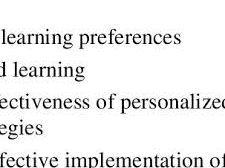Introduction
When it comes to the hospitality industry, creating the perfect ambiance is crucial. One of the key elements that can make or break the guest experience is lighting. Hospitality lighting is not just about illuminating spaces; it’s about setting the right mood, enhancing aesthetics, and ensuring functionality. In this blog, we will delve into the world of hospitality lighting, exploring its importance, key considerations, and the latest trends.
I. The Significance of Hospitality Lighting
Effective lighting in the hospitality sector plays a pivotal role in making guests feel comfortable and welcome. It’s more than just a practical necessity; it’s a tool for storytelling and branding. Here’s why it matters:
1.1 Guest Experience Enhancement
Well-planned lighting can transform a dull space into a welcoming haven. It can make guests feel relaxed, invigorated, or even romantic depending on the setting. The right lighting can elevate the overall guest experience.
1.2 Brand Identity
Lighting choices, fixtures, and designs can reinforce a hotel or restaurant’s brand identity. It can communicate luxury, eco-friendliness, or modernity, creating a lasting impression on guests.
II. Key Considerations in Hospitality Lighting
Achieving the perfect lighting scheme in a hospitality space requires careful planning and consideration. Here are some critical factors to keep in mind:
2.1 Functionality
Different areas within a hospitality establishment have varying lighting needs. Task lighting is essential in kitchens and workspaces, while ambient lighting sets the mood in guest rooms and public spaces.
2.2 Energy Efficiency
In an era of sustainability, energy-efficient lighting is not just a trend but a necessity. LED lighting, motion sensors, and smart controls can help reduce energy consumption and lower operational costs.
2.3 Design Aesthetics
Lighting fixtures should complement the interior design and architectural elements of the space. Modern and minimalist designs may call for sleek fixtures, while traditional spaces may benefit from chandeliers and sconces.
2.4 Light Color and Temperature
The color and temperature of light greatly impact the mood. Warmer tones (2700K-3000K) are cozy and inviting, while cooler tones (4000K-5000K) create a more energetic and vibrant atmosphere.
2.5 Dimming and Control
The ability to adjust light levels is essential for creating the right atmosphere at different times of the day. Dimmers and smart control systems offer flexibility.
III. Trends in Hospitality Lighting
To stay competitive and provide guests with the best experience, it’s essential to stay updated with the latest trends in hospitality lighting. Here are some of the current trends:
3.1 Smart Lighting
Integrating smart lighting systems that guests can control through mobile apps is a growing trend. This allows for customization and energy efficiency while providing a unique experience.
3.2 Artistic and Statement Lighting
Hotels and restaurants are increasingly using lighting as a form of art, creating stunning and eye-catching fixtures that become the focal point of a space.
3.3 Biophilic Lighting
Incorporating natural elements in lighting design, such as fixtures that mimic the sun or moon, helps create a connection with nature and a sense of well-being.
3.4 Vintage and Retro Lighting
Nostalgia is in, and vintage and retro lighting fixtures are making a comeback, creating a sense of nostalgia and charm.



